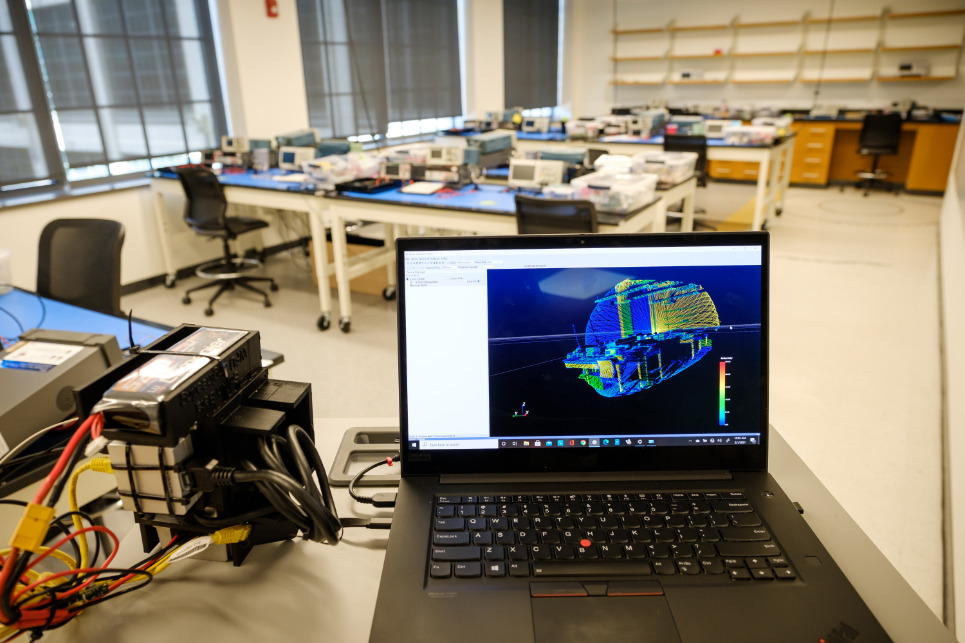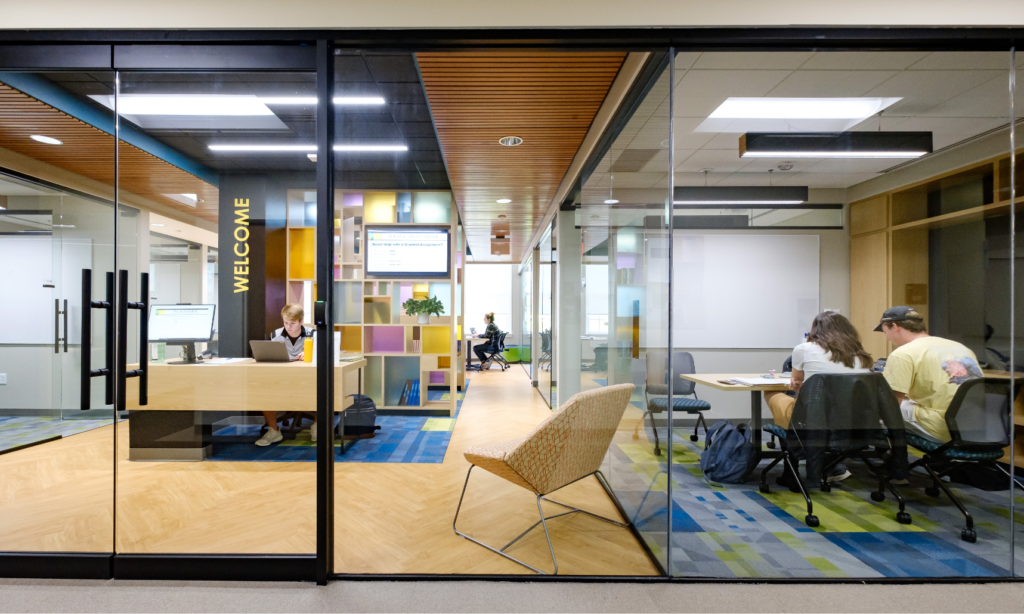Analytics, Data Accessibility and Standards
IV.
Analytics, Data Accessibility and Standards

Key Initiatives
Creating a Data Foundation
Building Blocks
A Data Analytics and Governance team was established to provide a depth of expertise to pursue opportunities in advanced analytics. The team was able to respond quickly and efficiently to Covid-19 challenges, with the creation of dashboards, connecting areas of campus through integrated reporting, and keeping up with campus needs that were changing daily.
With our cloud-first strategy ever present, we moved the data warehouse to the cloud, allowing us to focus on the significance of the data, not the maintenance of the data. A Data Standards Committee was engaged to address important issues, such as the use of gender and pronouns, across multiple campus systems in support of our multidimensional community.

The introduction of new and sophisticated data analytics and virtualization tools presents Wake Forest with new opportunities for collecting, sharing, and applying data across multiple areas. With a new Advisory Group dedicated to governance, we will begin establishing data standards and governance. The creation of a governance structure, data glossary, and data literacy training programs will serve to eliminate barriers and preserve the integrity of data and privacy. Initially, work will be focused around the upcoming Student Information System implementation, to develop standards and policies that will carry forward in future endeavors.
Access to leading-edge reporting technology is critical to the success of utilizing data effectively and efficiently. We will retire old technologies and applications to make way for new ones that will provide the best landscape to advance our data utilization and adoption.
Increasing Campus Adoption
Building Blocks
With the implementation of Power BI, and enhancements to our current reporting system, Cognos, we now have the tools for our campus report writers and end-users to analyze, visualize, and share data in new and interesting ways.
Partnering with Finance Systems, the IS Analytics and Data Governance team collaborated on a project using Workday Prism Analytics to address unexpensed credit card transactions for Covid-19 spending controls. Prism allows the broad ability to combine both Workday and non-Workday data and publish to authorized users in an automated manner without requiring them to leave Workday.

Working with University leaders to champion an institutional effort of gathering, connecting, and sharing institutional data will enable our campus to collaborate more effectively and efficiently with better information. Our goal is to educate our campus on the importance of this methodology, ensure departments are utilizing this technology efficiently and securely in their day-to-day activities, and to more evenly distribute data knowledge throughout departments.
Ensuring new and growing areas, such as the School of Professional Studies, remain connected to Reynolda Campus through robust integrations is a top priority. Improved reporting for systems across campus, including Canvas, Handshake, Slate, Star Res, and more are several of the areas that will benefit from this new way of conducting business.
Increasing utilization of Power BI and Cognos through training will enable users to extract data, analyze it, and assemble reports, making data-driven decisions easier and faster. Determining a solution for cataloguing data for ease of use and securely making it available for authorized users remains on our roadmap. Employing Workday Prism to leverage our ERP system to the fullest, will provide a new solution for staff to integrate, manage, and transform data to share valuable insights with others.
With robust reporting in place, campus colleagues can begin to use data in new and helpful ways that will lead to a better user experience and prioritization of investments. Supplying data to service and support teams will enable them to provide better and more targeted support for their populations. This data will also help campus leadership during licensing renegotiations to optimize our license structure so we are paying for what we actually need.

